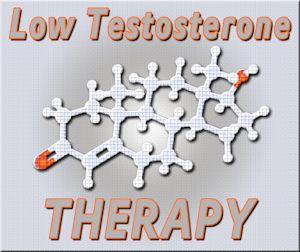 Our bodies are truly amazing when it comes to communication between cells, organs, tissues, etc. Not only are our bodies complex with millions of unseen chemical reactions taking place, but these reactions tell our brains what we need – including cravings for certain foods. A new study, that we will discuss here, reveals the “cross talk” between our gut and brain that persuades our brain to crave more protein when the gut detects a protein deficiency.
Our bodies are truly amazing when it comes to communication between cells, organs, tissues, etc. Not only are our bodies complex with millions of unseen chemical reactions taking place, but these reactions tell our brains what we need – including cravings for certain foods. A new study, that we will discuss here, reveals the “cross talk” between our gut and brain that persuades our brain to crave more protein when the gut detects a protein deficiency.
Video Link: https://vimeo.com/556901662
Video Download: Click Here To Download Video
Video Stream: Click Here To Stream Video
Hormone in Gut Triggers Craving for Protein
Our bodies use hormones to communicate between cells and organs, such as from the gut to the brain, or vice versa. Hormones have even been called “chemical messengers.” In this case, a hormone is telling our brains (to tell us) to want more protein. Find more protein and eat it now!
The study in which this hormonal interaction was discovered was led by KAIST national research university scientists. They used fruit flies to reveal this specific relationship between the gut and the brain. The study was first published in the journal Nature. The hope is that the results will help us to better understand malnutrition, and specifically protein malnutrition, in humans.
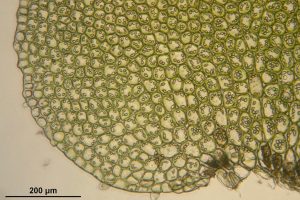 Malnutrition Can Still Occur Even with Adequate Caloric Intake
Malnutrition Can Still Occur Even with Adequate Caloric Intake
All living organisms on the planet need to consume a balanced amount of proteins, carbohydrates and fats in order to live healthy and live long. Just getting enough calories every day, especially if it’s mostly from junk food, can still lead to severe forms of malnutrition if there is not enough protein in the diet.
We already know that when we are not getting enough of a certain macronutrient, such as protein, then we tend to crave more of those food items that contain lots of protein or essential amino acids. However, scientists did not know how this happens, or the biological mechanism taking place. So, the researchers at KAIST decided to try and answer this question by looking at the effects of different genes on food preference on fruit flies after they were deprived of protein.
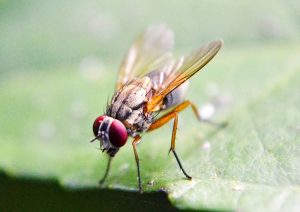 Protein Deprivation Triggers Release of a Neuropeptide
Protein Deprivation Triggers Release of a Neuropeptide
After the fruit flies were deprived of protein, the researchers found that the release of a gut hormone called CNMadmide (CNMa) was triggered from the certain cells of the intestines. These cells are called enterocytes and were previously known to release digestive enzymes into the intestines to digest and absorb the nutrients in the gut. Apparently, they also take part in other important roles in the body. The human body just gets more and more complex the more we study it!
Basically, when the enterocytes experience protein deprivation, they respond by releasing CNMa which travels to CNMa receptors on the nerve cells of the brain, essentially reporting the gut’s nutrient status to the brain. Once the brain receives the word, the brain triggers a desire to eat foods with lots of protein.
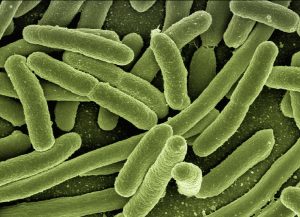 Microbiome Helps Us Combat a Nutrient Deficiency
Microbiome Helps Us Combat a Nutrient Deficiency
Another really cool finding from the study was that the microbiome in the gut – the bacteria population within the gut – specifically, acetobacter bacteria, will produce amino acids under protein deprivation in order to remedy the protein deficiency temporarily. Not only that, but this small release of amino acids lowered the flies’ desire to eat more protein.
“Because all organisms have cravings for needed nutrients, the nutrient sensors and their pathways we identified in flies would also be relevant to those in mammals,” Professor Suh stated. The researchers believe this and future research will help us to better understand the causes of metabolic disease and eating disorders.
Reference
Contact Us Today For A Free Consultation
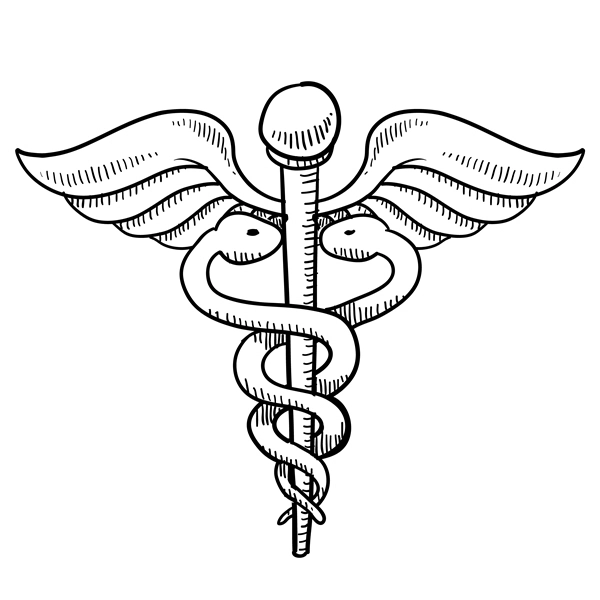
- Cano's spokeswoman was client of Biogenesis [Last Updated On: January 25th, 2024] [Originally Added On: May 4th, 2013]
- Documents: Cano associate was client of clinic [Last Updated On: January 25th, 2024] [Originally Added On: May 4th, 2013]
- Sources: Cano associate was Biogenesis client [Last Updated On: January 25th, 2024] [Originally Added On: May 4th, 2013]
- Early Stage Testicular Cancer - Surveillance Is Best Follow-Up Strategy [Last Updated On: January 25th, 2024] [Originally Added On: May 18th, 2013]
- 2013 Endocrine Function Testing Market in Europe: Hospitals, Commercial Labs, Physician Offices, Ambulatory Care Centers [Last Updated On: January 25th, 2024] [Originally Added On: June 14th, 2013]
- Europe Endocrine Function Testing Market Studied by VPG in Cutting-Edge Report Now Available at MarketPublishers.com [Last Updated On: January 25th, 2024] [Originally Added On: June 18th, 2013]
- A More 'Natural' Version Of IVF Proves A Success [Last Updated On: January 25th, 2024] [Originally Added On: June 19th, 2013]
- Weight Loss Cure with Metabolic Cookbook - Video [Last Updated On: January 25th, 2024] [Originally Added On: July 12th, 2013]
- Weight Loss Drops - Are They A Scam? - Video [Last Updated On: January 25th, 2024] [Originally Added On: July 12th, 2013]
- Abbott Features Solutions to Help Labs Prepare for the Evolving Healthcare Landscape at the American Association for ... [Last Updated On: January 25th, 2024] [Originally Added On: July 30th, 2013]
- How Testicular Cancer Is Diagnosed | Testicular Cancer - Video [Last Updated On: January 25th, 2024] [Originally Added On: August 11th, 2013]
- 2014 Opportunities in the US Clinical Chemistry and Immunodiagnostics Markets [Last Updated On: January 25th, 2024] [Originally Added On: September 27th, 2013]
- Serie A - Doping ban overturned on cancer sufferer Acerbi [Last Updated On: January 25th, 2024] [Originally Added On: January 8th, 2014]
- Health Highlights: Jan. 8, 2014 [Last Updated On: January 25th, 2024] [Originally Added On: January 8th, 2014]
- Testosterone Replacement Therapy [Last Updated On: December 9th, 2023] [Originally Added On: January 19th, 2014]
- Paid Hepatitis C Clinical Trial Now Enrolling at Avail Clinical Research near Orlando, Florida; Accepting M/F Patients ... [Last Updated On: January 25th, 2024] [Originally Added On: January 22nd, 2014]
- Luteal Phase: The Uterine Lining Phase - Video [Last Updated On: January 25th, 2024] [Originally Added On: April 10th, 2014]
- Doping case against Acerbi dismissed [Last Updated On: January 25th, 2024] [Originally Added On: April 15th, 2014]
- Drugs that Cause Gynecomastia [Last Updated On: January 25th, 2024] [Originally Added On: May 14th, 2014]
- Illegal Online Meds Targeted in Worldwide Crackdown, FDA Says [Last Updated On: January 25th, 2024] [Originally Added On: May 24th, 2014]
- Biogenesis' Bosch surrenders in PEDs case [Last Updated On: January 25th, 2024] [Originally Added On: August 5th, 2014]
- Duchess of Cambridge 'hugely disappointed' after being forced to pull out of yet another engagement due to morning ... [Last Updated On: January 25th, 2024] [Originally Added On: October 1st, 2014]
- Kate, Duchess of Cambridge dazzles in baby blue gown at the Natural History Museum [Last Updated On: January 25th, 2024] [Originally Added On: October 22nd, 2014]
- 'They're poisoning us'. How religious leaders are hindering vaccination programmes across the world [Last Updated On: January 25th, 2024] [Originally Added On: November 14th, 2014]
- Poor prognosis germ-cell tumours are only cured in about half of patients. We aimed to assess whether treatment ... [Last Updated On: January 25th, 2024] [Originally Added On: November 23rd, 2014]
- Nursing a Grudge [Last Updated On: January 25th, 2024] [Originally Added On: January 22nd, 2015]
- Hormone Levels in Men - Testosterone Injections [Last Updated On: November 30th, 2021] [Originally Added On: September 9th, 2016]
- Human Growth Hormone May Actually IMPROVE Quadricep Strength After Reconstruction of Torn ACL [Last Updated On: September 23rd, 2024] [Originally Added On: June 22nd, 2020]
- Six Ways to Feel Good and Balance Your Hormones at the Same Time! [Last Updated On: January 25th, 2024] [Originally Added On: September 24th, 2020]
- Your Birthplace Heavily Influences Your Future Testosterone Levels [Last Updated On: August 19th, 2024] [Originally Added On: March 6th, 2021]
- Both High and Low Levels of Testosterone Correlate With Cardiovascular Issues in Men [Last Updated On: September 27th, 2024] [Originally Added On: April 14th, 2021]
- Breaking News: Testosterone May Be the Answer to Autoimmune Diseases [Last Updated On: August 24th, 2024] [Originally Added On: May 14th, 2021]
- Testosterone Therapy Could Help Quell Your Asthma Attacks [Last Updated On: September 12th, 2024] [Originally Added On: June 20th, 2021]
- BPA Here, BPA There, What’s the Reason for the Scare? [Last Updated On: September 16th, 2024] [Originally Added On: June 29th, 2021]
- Low Testosterone Linked to Depression and Suicidal Ideation [Last Updated On: August 25th, 2024] [Originally Added On: July 5th, 2021]
- It’s True: Men Today Have Less Testosterone Compared to Men a Generation Ago [Last Updated On: September 19th, 2024] [Originally Added On: July 13th, 2021]
- Losing Weight with Baratric Surgery Reverses Low Testosterone [Last Updated On: October 2nd, 2024] [Originally Added On: February 8th, 2022]
- Do Larger Testicles Make More Testosterone? [Last Updated On: July 24th, 2024] [Originally Added On: May 3rd, 2022]
- Fact or Myth: Have Testosterone Levels Really Dropped by 50% Just in the Past Two Decades? [Last Updated On: August 14th, 2024] [Originally Added On: June 4th, 2022]
- Another Analysis Shows No Cardiovascular Risks With Testosterone Therapy [Last Updated On: October 6th, 2024] [Originally Added On: November 27th, 2022]
Word Count: 612










